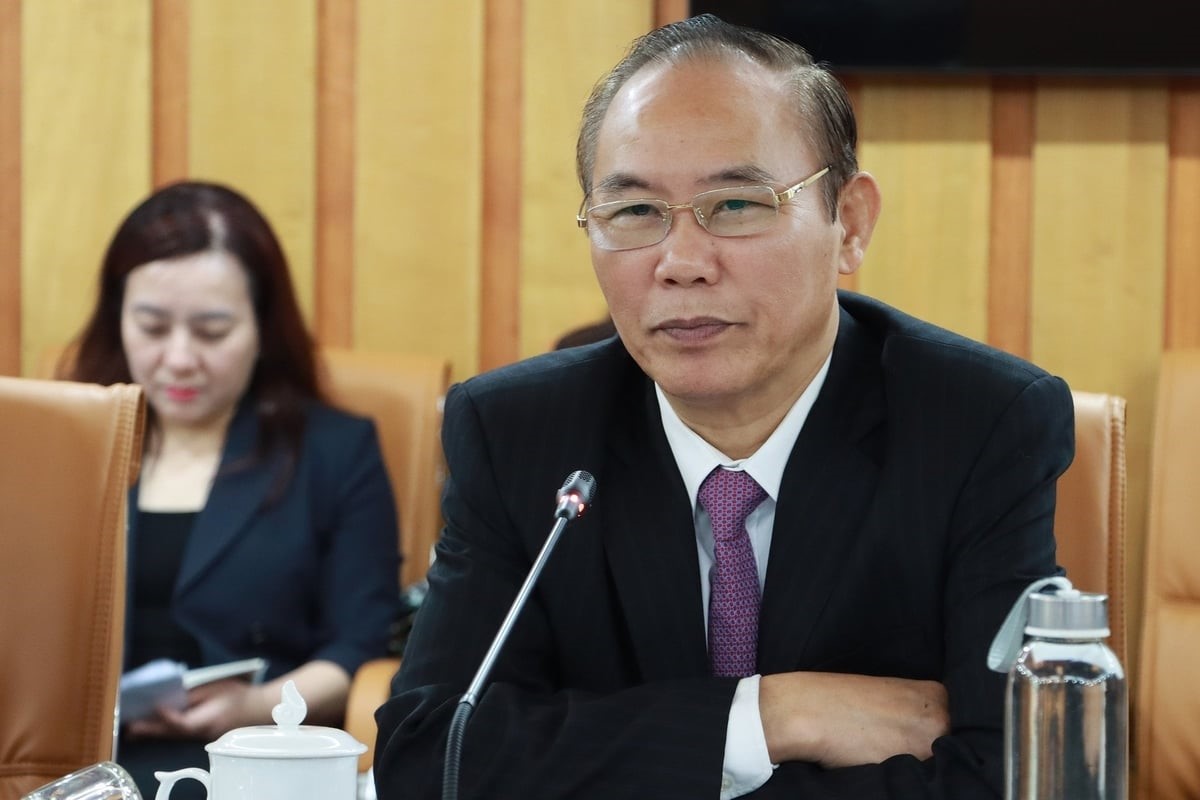Vietnam and Queensland boost two-way trade in agricultural products
G+ ( en.mae.gov.vn/vietnam-and-queensland-boost-twoway-trade-in-agricultural-products-9102.htm)
With bilateral agricultural trade exceeding AUD 4.2 billion, Vietnam and Queensland aim to balance exports and imports through cooperation in value chains, food safety, and innovation-driven growth.
On the morning of November 3, Deputy Minister of Agriculture and Environment Phung Duc Tien held a working session with a delegation from the State of Queensland, Australia, led by Ros Bates MP, Minister for Finance, Trade, Employment, and Skills Development for Queensland.
The meeting took place as the Vietnam-Australia Comprehensive Strategic Partnership continues to develop strongly, with both sides intensifying cooperation in agriculture, trade, and technology. At the meeting, Deputy Minister Phung Duc Tien emphasized that Australia is one of Vietnam's most important agricultural trade partners. The two-way trade turnover in the agriculture, forestry, and fishery sectors has maintained stable growth in recent years, clearly demonstrating the mutual trust and complementarity within the regional supply chain. Bilateral cooperation programs under the frameworks of ACIAR, CSIRO, and Aus4Innovation have yielded practical results, contributing to enhancing Vietnam's capacity for research, technology innovation, and sustainable, climate-adaptive agricultural development.

In 2024, Vietnam-Australia bilateral trade turnover reached approximately 4.2 billion AUD, with agricultural products and food accounting for a significant share. Vietnam currently imports high-quality goods from Queensland, such as beef, live cattle, cotton, grains, soybeans, and agricultural technology. Conversely, Vietnam's seafood, coffee, cashews, fruits, vegetables, and processed foods also hold great potential for export expansion.
Minister Ros Bates MP congratulated Vietnam on the market opening for Vietnamese pomelo and Australian blueberries. Minister Bates also shared details of the "Taste of Queensland" campaign currently being implemented to promote the state's key agricultural products, such as high-quality beef, nuts, and seafood. According to the Minister, Queensland is Australia’s leading state in developing clean, transparent, and traceable food supply chains and affirmed its readiness to support Vietnam in transitioning to a sustainable food system.
During the working session, Deputy Minister Phung Duc Tien proposed four key cooperation orientations:
First, both sides need to enhance two-way trade in agricultural products and food, aiming for trade balance and the development of sustainable value chains. Vietnam possesses seven diverse agricultural ecological regions, with a system of raw material areas, processing facilities, and packaging meeting traceability and food safety standards. Vietnam is ready to boost exports of key products like seafood, tropical fruits, processed agricultural products, and organic food to Queensland, while encouraging the import of high-quality products and advanced agricultural technology from the state.

Second, expand cooperation in research, training, and modern agricultural technology transfer. Vietnam’s agricultural sector is moving toward green and digital transformation, urgently needing the participation of Queensland universities, research institutes, and enterprises in innovation programs, low-emission agriculture, and climate adaptation.
Third, promote investment and public-private cooperation in the agricultural sector to form large-scale commodity value chains. The Deputy Minister proposed that Queensland enterprises invest in high-tech agriculture, agricultural logistics, processing centers, and value chain development in Vietnam.
Fourth, strengthen trade promotion and brand advertisement for agricultural products, suggesting that programs like "Taste of Queensland" should be implemented more frequently in Vietnam.
Deputy Minister Phung Duc Tien affirmed that with the tradition of excellent cooperation and the Comprehensive Strategic Partnership framework upgraded in 2024, agricultural cooperation between Vietnam and Queensland will continue to grow strongly in the coming time. The leadership of the Ministry of Agriculture and Environment also expressed hope that the two sides will expand investment cooperation in logistics infrastructure, seaports, aviation, railways, and maritime transport, contributing to supply chain connectivity.
In addition to her role as Trade Minister, Minister Bates is also responsible for investment, ports, and commerce, and is ready to discuss further if Vietnamese enterprises need connections or face difficulties accessing the market.
Kieu Chi